5 Essential Tips for Choosing the Perfect Farmhouse Style Chandelier for Your Family-Friendly Home
If you're a parent trying to balance style and practicality in your home decor, you've probably wondered how to bring rustic charm into a space that also needs to be kid-friendly. The good news? Farmhouse style chandeliers are here to rescue your interior dreams without compromising on safety or functionality.
In this article, we’ll walk you through five essential tips for choosing the perfect farmhouse-style chandelier that complements your family-friendly lifestyle. We'll dive into materials, height, size, lighting options, and even touch on holiday-ready selections!
Table of Contents
- Tip #1: Prioritize Sturdy and Safe Materials
- Tip #2: Consider the Height and Placement
- Tip #3: Size Matters — Proportions Are Key
- Tip #4: Choose Dimmable Lighting for Versatility
- Tip #5: Opt for Easy-to-Clean Designs
- Buyer’s Guide: Our Top Picks for Farmhouse-Style Chandeliers
- Conclusion
Tip #1: Prioritize Sturdy and Safe Materials
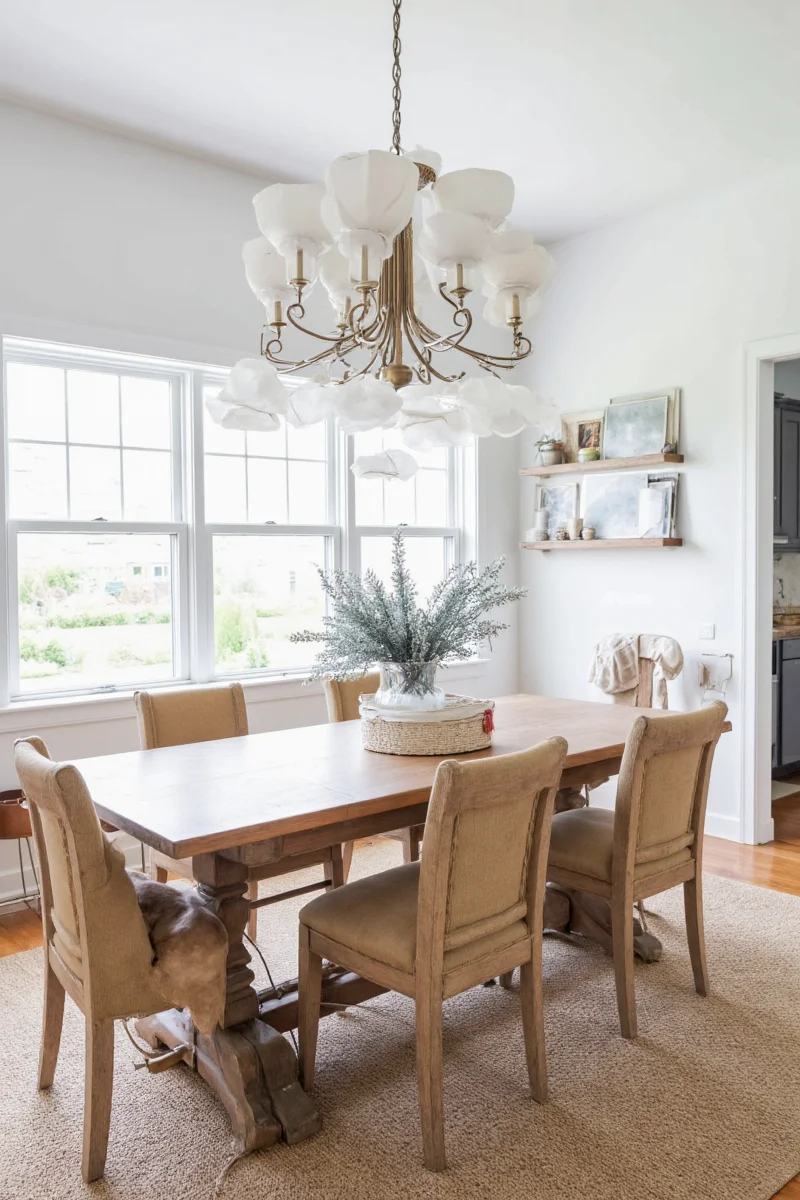
When designing a family-friendly space, safety always comes first. With little hands reaching high and playful toddlers zooming around, fragile glass or delicate crystal fixtures might not be the best choice (unless you’re ready for constant supervision).
Instead, opt for durable materials like:
- Iron or Steel: These metals offer rugged charm and can withstand minor bumps and knocks.
- Wood Accents: A natural wood finish adds warmth and blends perfectly with farmhouse aesthetics.
- Milk Glass Shades: More resistant to cracks than clear glass and softer on the eyes.
Tip #2: Consider the Height and Placement
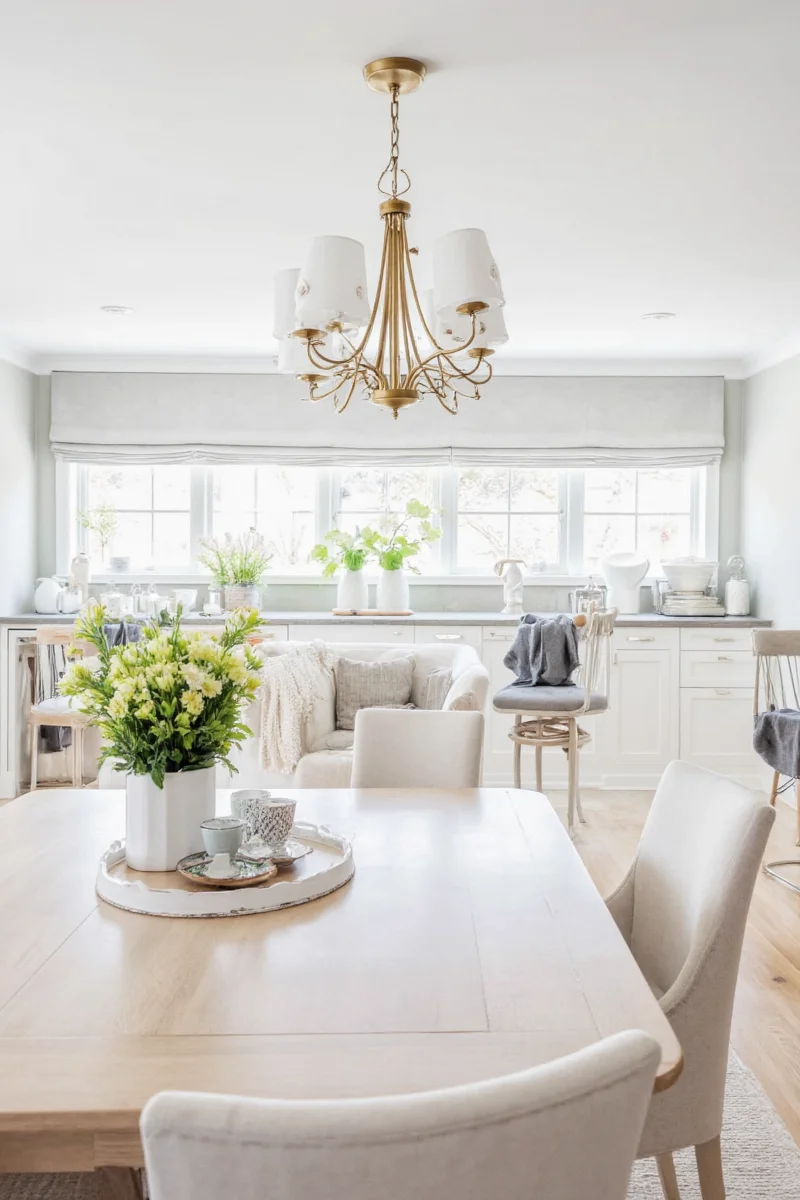
Proper installation height is crucial in open spaces like dining rooms or kitchens where kids may pass under them regularly. Here’s a quick guide:
| Room Type | Recommended Hanging Height |
|---|---|
| Dining Room (above table) | 30–36 inches |
| Kitchen Island | 30–36 inches |
| Entryway/Foyer | 7–8 feet from floor |
| Living Room (over seating area) | 7–9 feet from floor |
For families with small children, consider hanging the chandelier a few inches higher than usual to reduce the risk of accidental contact.
Tip #3: Size Matters — Proportions Are Key
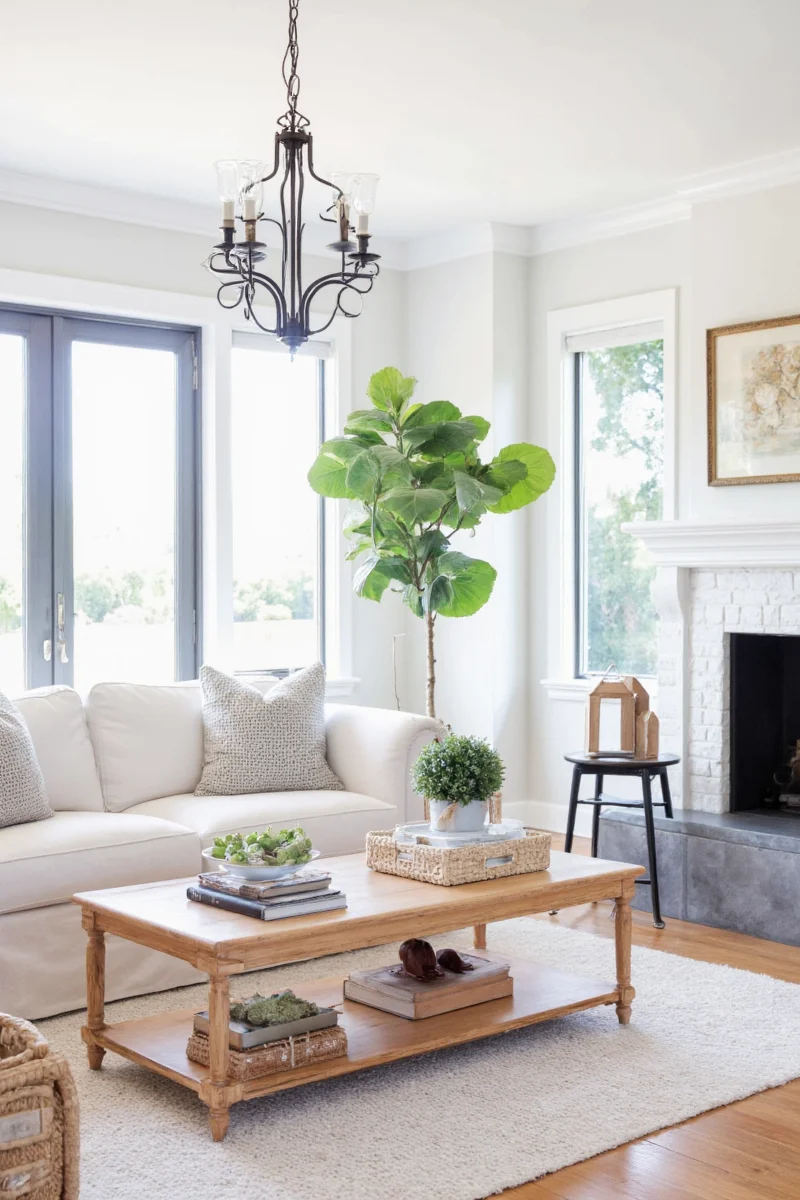
The right size ensures visual harmony and prevents your fixture from looking too overwhelming or undersized. To find the ideal diameter:
- Use the formula: Add the length and width of the room (in feet), then convert that number to inches. That gives you the ideal chandelier diameter.
- Example: A 12' x 14' dining room = 26 → 26-inch diameter chandelier.
Also, remember that larger families often mean larger gatherings. If your dining table seats six or more, go slightly bigger for a bolder statement while maintaining proportion.
Tip #4: Choose Dimmable Lighting for Versatility
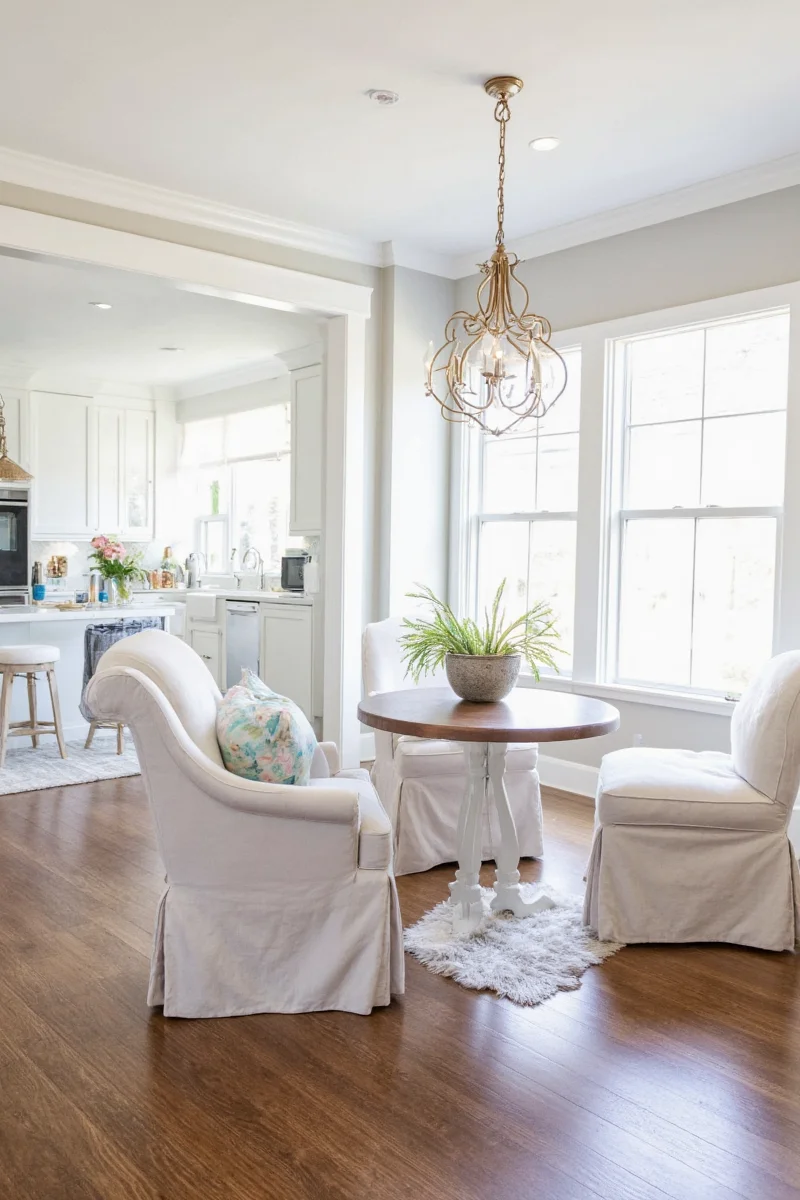
Dimming capabilities add a layer of flexibility to your home lighting. Whether it’s movie night, bedtime story time, or hosting guests, adjustable lighting makes a huge difference.
Look for chandeliers compatible with:
- LED Bulbs: Energy-efficient and long-lasting, ideal for households with young children who may leave lights on longer.
- Smart Switches or Voice Control: Great for parents juggling dishes or baby bottles and needing to adjust lighting quickly.
Tip #5: Opt for Easy-to-Clean Designs
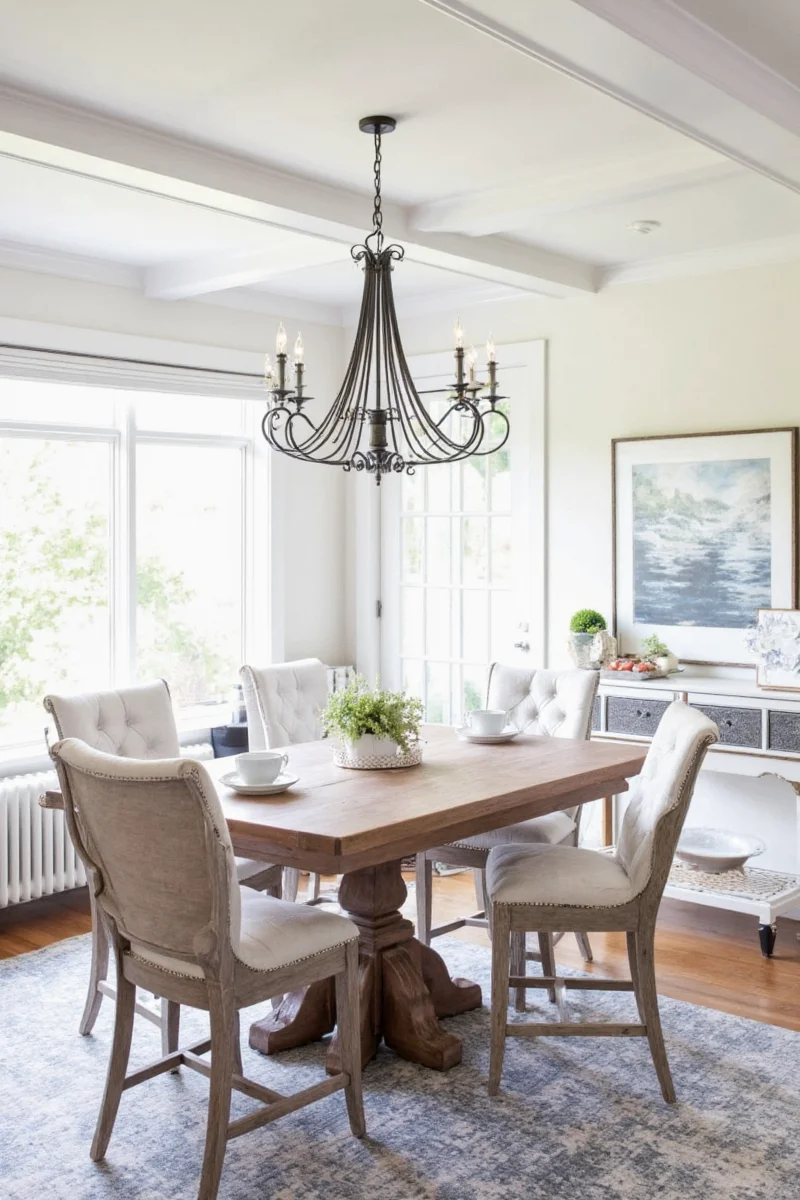
Let’s face it — kids will eventually get sticky fingers near everything. Dust accumulates faster when you’ve got multiple people running around. So, choose a design that’s easy to maintain.
Look for these features:
- Minimal Ornate Detailing: Less surface area means less dust buildup.
- Removable Shades or Covers: Makes cleaning easier without climbing up every week.
- Wipeable Surfaces: Avoid porous finishes; stick with sealed metal or smooth glass.
Buyer’s Guide: Our Top Picks for Farmhouse-Style Chandeliers
We’ve curated a list of top-rated farmhouse-style chandeliers that meet the criteria for family-friendly living. Below is a detailed comparison based on material, ease of maintenance, dimming compatibility, and recommended use cases.
| Product Name | Material | Bulb Type | Dimmable | Recommended Use | Special Features |
|---|---|---|---|---|---|
| Westinghouse Berkley | Steel + Milk Glass | 6 x E26 | ✅ Yes | Dining Room | Adjustable height, classic vintage look |
| Hudson Valley Farmstead | Cast Iron + Oak Wood | 4 x Edison LED | ✅ Yes | Entryway / Foyer | Hand-finished, artisan design |
| Kichler Fairhaven | Steel + Clear Glass | 4 x Medium Base | ❌ No | Living Room | Elegant yet sturdy, fits transitional styles |
| Allstar Décor Industrial Pipe | Pipe Metal + Rustic Finish | 6 x E26 | ✅ Yes | Kitchen Island | DIY assembly, customizable |
| Feiss Yorkville | Forged Iron + White Linen | 3 x Candelabra | ✅ Yes | Bedroom / Sitting Area | Soft light diffusion, elegant silhouette |
Who Should Buy What?
- Large Families: Go for the Allstar Décor Industrial Pipe — budget-friendly, durable, and easy to clean.
- Modern Farmhouse Lovers: Westinghouse Berkley brings timeless elegance with a vintage twist.
- Design Enthusiasts: The Hudson Valley Farmstead is a showpiece for entryways and foyers.
- New Parents: The Feiss Yorkville offers gentle lighting ideal for nurseries or reading corners.
Best for Holidays and Gatherings
If you love entertaining during holidays, choose a chandelier with warm-toned bulbs or soft white shades. Some models even come with smart controls — perfect for adjusting ambiance remotely while hosting.
Conclusion
Finding the perfect farmhouse-style chandelier for your family-friendly home doesn’t have to feel like walking a tightrope between beauty and chaos. By prioritizing safety, practicality, and style, you can create a welcoming environment that looks amazing and stands up to everyday life.
Whether you're hosting dinner parties or surviving toddler tantrums, the right chandelier will enhance your space and reflect your personality as a parent and decorator. Don’t forget to mix function with farmhouse flair — your dream home is just one well-chosen light fixture away.

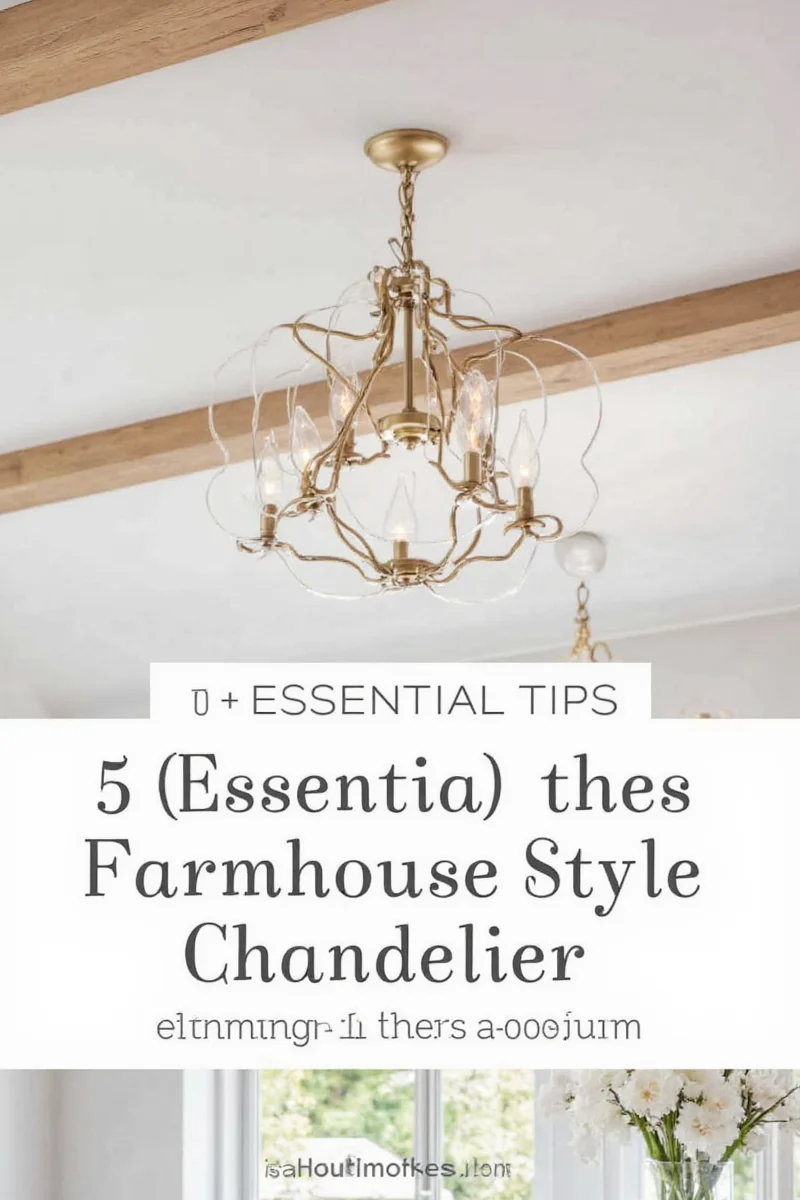









 浙公网安备
33010002000092号
浙公网安备
33010002000092号 浙B2-20120091-4
浙B2-20120091-4